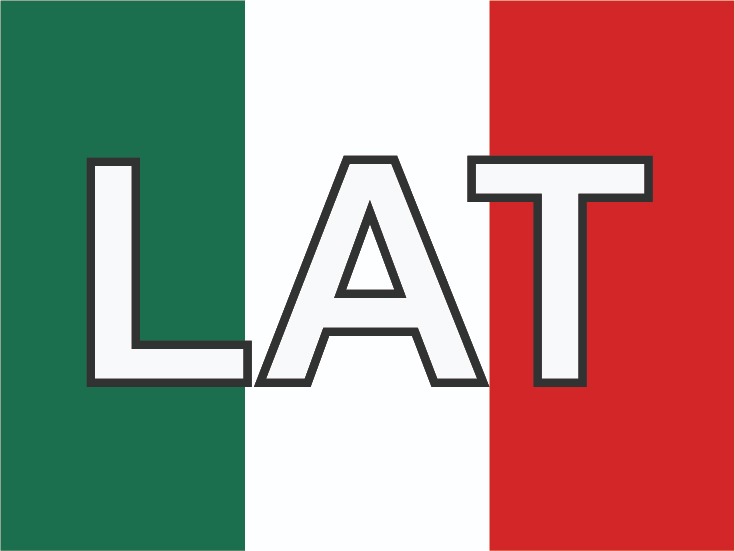Incidence of nutritional support complications in patient hospitalized in wards. multicentric study
Abstract
Introduction: Nutritional support generates complications that must be detected and treated on time.
Objective: To estimate the incidence of some complications of nutritional support in patients admitted to general hospital wards who received nutritional support in six high-complexity institutions.
Methods: Prospective, descriptive and multicentric study in patients with nutritional support; the variables studied were medical diagnosis, nutritional condition, nutritional support duration, approach, kind of formula, and eight complications.
Results: A total of 277 patients were evaluated; 83% received enteral nutrition and 17% received parenteral nutrition. Some 69.3% presented risk of malnourishment or severe malnourishment at admittance. About 35.4% of those receiving enteral nutrition and 39.6% of the ones who received parenteral nutrition had complications; no significant difference per support was found (p = 0.363). For the enteral nutrition, the most significant complication was the removal of the catheter (14%), followed by diarrhea (8.3%); an association between the duration of the enteral support with diarrhea, constipation and removal of the catheter was found (p < 0.05). For parenteral nutrition, hyperglycemia was the complication of highest incidence (22.9%), followed by hypophosphatemia (12.5%); all complications were associated with the duration of the support (p < 0.05). Nutritional support was suspended in 24.2% of the patients.
Conclusions: Complications with nutritional support in hospital-ward patients were frequent, with the removal of the catheter and hyperglycemia showing the highest incidence. Duration of the support was the variable that revealed an association with complications. Strict application of protocols could decrease the risk for complications and boost nutritional support benefits.
Authors
Downloads
Keywords
- nutritional support
- enteral nutrition
- parenteral nutrition
- complications
- hospitalization wards
- adults
References
Sobotka L, Soeters P, Raguso C, Jolliet P, Pichard C. Basics in Clinical Nutrition: Nutritional support in critically ill and septic patients. E Spen Eur E J Clin Nutr Metab. 2009; 5: e146-e147.
Heyland DK, Schroter-Noppe D, Drover JW, Jain M, Keefe L, Dhaliwal R, et al. Nutrition support in the critical care setting: cu¬rrent practice in canadian ICUs--opportunities for improvement? JPEN J Parenter Enteral Nutr. 2003; 27: 74-83.
Pichard C, Thibault R, Heidegger C-P, Genton L. Enteral and parenteral nutrition for critically ill patients: A logical combina¬tion to optimize nutritional support. Clin Nutr Suppl 2009; 4: 3-7.
Lamache L, Fuchs V. Alimentación Enteral. En: Fuentes d, Toro S (ed). Nutrición, cirugía y terapia intensiva. México: Editorial El Manual Moderno; 2004. p. 653-656.
Guglielmi FW, Regano N, Mazzuoli S, Fregnan S, Leogrande G, Guglielmi A, et al. Cholestasis induced by total parenteral nutri¬tion. Clin Liver Dis. 2008; 12: 97-110, viii.
Bonet A, Grau T. Multicenter study on incidence of total paren¬teral nutrition complications in the critically-ill patient. ICOMEP study. Part I. Nutr Hosp. 2005; 20: 268-77.
Batani R, Abdullah D, Bahari M. Evaluation of the total parente¬ral nutrition service at University Sains Malaysia Hospital. Eur E-J Clin Nutr Metabolism. 2007; 10: 2-5.
Montejo JC, Catalan M. Diarrea. Significado y control en nutri¬ción artificial. Nutr Clin Med. 2009; 3: 40-51.
Edes TE, Walk BE, Austin JL. Diarrhea in tube-fed patients: fee¬ding formula not necessarily the cause. Am J Med. 1990; 88: 91-3.
Montejo JC. Enteral nutrition-related gastrointestinal compli¬cations in critically ill patients: a multicenter study. The Nutritio¬nal and Metabolic Working Group of the Spanish Society of In¬tensive Care Medicine and Coronary Units. Crit Care Med. 1999; 27: 1447-53.
Montejo J, Jiménez J, Ordóñez J, Caparrós T, García A, Ortiz C. Complicaciones gastrointestinales de la nutrición enteral en el paciente crítico. Med Intensiva. 2001; 25: 52-160.
Lopez-Herce J. Gastrointestinal complications in critically ill patients: what differs between adults and children? Curr Opin Clin Nutr Metab Care. 2009; 12: 180-5.
Agudelo GM, Giraldo NA, Aguilar NL, Restrepo B, Vanegas M, Alzate S, et al., Incidence de complicaciones del soporte nutricio¬nal en pacientes hospitalizados en Unidad de Cuidado Intensivos: Estudio Multicéntrico, Nutr Hosp. 2011; 26: 537-54.
Parrish, CR. Checking Gastric Residual Volumes: A Practice in Search of Science? Practical Gastroenterology. 2008;67:33-43.
Bolder U, Ebener C, Hauner H, Jauch KW, Kreymann G, Oc¬kenga J, et al., Carbohydrates - Guidelines on Parenteral Nutrition, Chapter 5. Ger Med Sci. 2009; 7: Doc23.
Pleva M, Mirtallo JM, Steinberg SM. Hyperglycemic events in non-intensive care unit patients receiving parenteral nutrition. Nutr Clin Pract. 2009; 24: 626-34.
Ahrens CL, Barletta JF, Kanji S, Tyburski JG, Wilson RF, Janisse JJ, et al., Effect of low-calorie parenteral nutrition on the incidence and severity of hyperglycemia in surgical patients: a randomized, controlled trial. Crit Care Med. 2005; 33: 2507-12.
Marti-Bonmati E, Ortega-Garcia MP, Cervera-Casino P, Lacasa C, Llop JL, Villalobos JL, et al. Multicenter study on the preva¬lence of hyperglycemia among hospitalized patients with parente¬ral nutrition. Farm Hosp. 2006; 30: 12-9.
Martinez MJ, Martinez MA, Montero M, Campelo E, Castro I, Inaraja MT. Hypophosphatemia in postoperative patients with total parenteral nutrition: influence of nutritional support teams. Nutr Hosp. 2006; 21: 657-60.
Llop J, Comas D, Badia MB, Saéz A, Jódar R, Gómez J. Hipo¬fosfatemia en nutrición parenteral: prevención y factores de riesgo asociados. Nutr Hosp. 2004; 19: 362-66.
Zeki S, Culkin A, Gabe SM, Nightingale JM. Refeeding hypo¬phosphataemia is more common in enteral than parenteral fee¬ding in adult in patients. Clin Nutr. 2011; 30: 365-68.
Opilla M. Epidemiology of bloodstream infection associated with parenteral nutrition. Am J Infect Control. 2008; 36: S173 e5-8.
Dimick JB, Swoboda S, Talamini MA, Pelz RK, Hendrix CW, Lipsett PA. Risk of colonization of central venous catheters: cathe¬ters for total parenteral nutrition vs other catheters. Am J Crit Care. 2003; 12: 328-35.
Ferraresi E, Murguia D. Complicaciones infecciosas de la nu¬trición parental. En: Arenas H, Anaya R (eds). Nutrición enteral y parenteral. México: McGrawHill; 2007. p. 309-320.
Guglielmi FW, Boggio-Bertinet D, Federico A, Forte GB, Gu¬glielmi A, Loguercio C, et al. Total parenteral nutrition-related gastroenterological complications. Dig Liver Dis 2006; 38: 623-42.
The copy rights of the articles published in Colombia Médica belong to the Universidad del Valle. The contents of the articles that appear in the Journal are exclusively the responsibility of the authors and do not necessarily reflect the opinions of the Editorial Committee of the Journal. It is allowed to reproduce the material published in Colombia Médica without prior authorization for non-commercial use




















